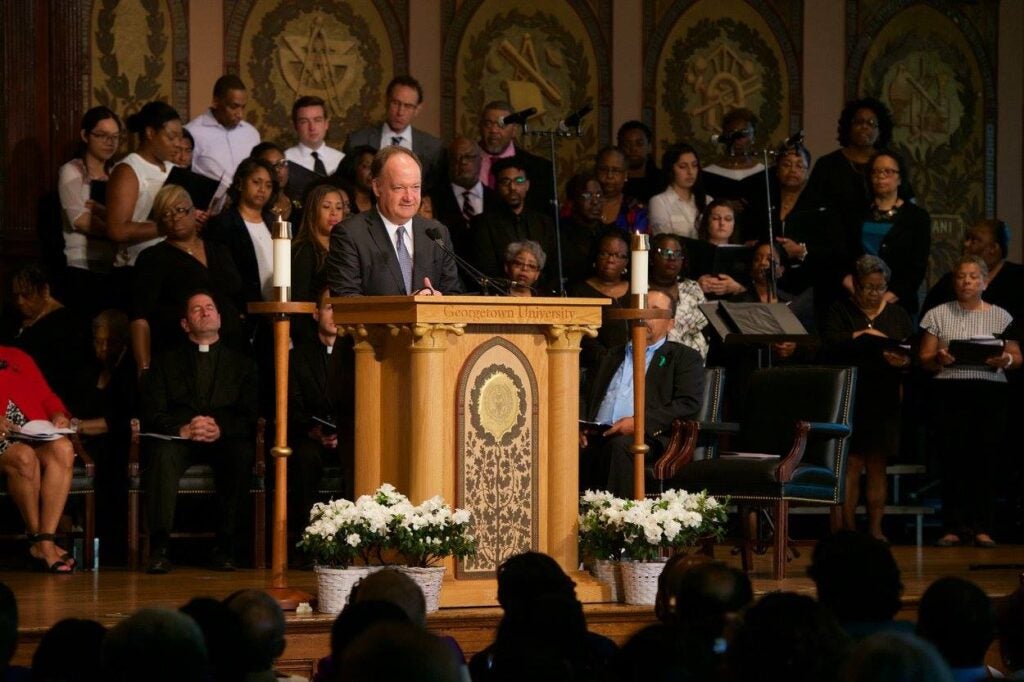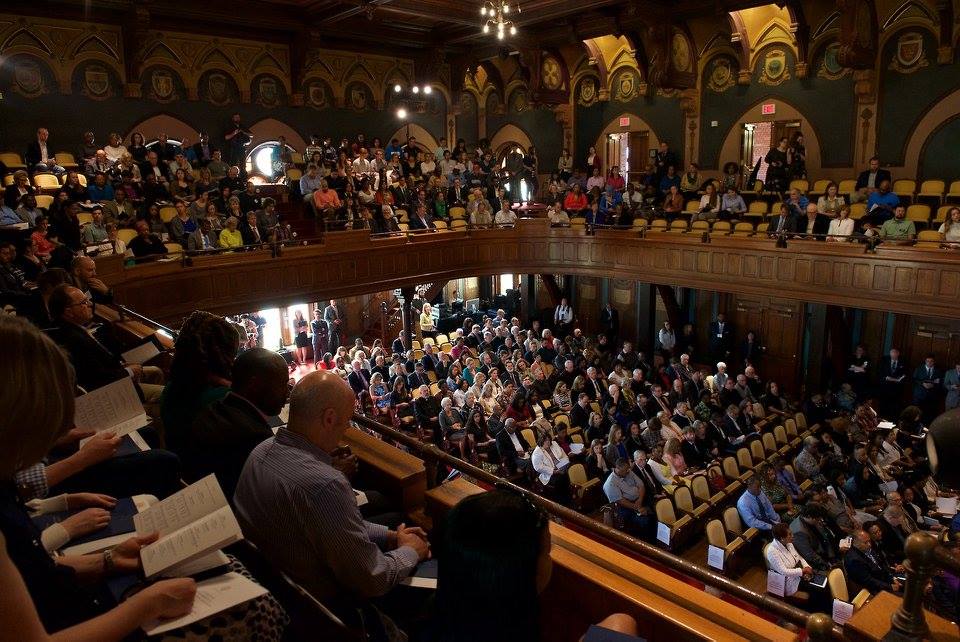Remarks at the “Liturgy of Remembrance, Contrition, and Hope”
I begin—as those who have come before me this morning—in humility and gratitude…for the opportunity to stand before you, the members of our descendant community, as we express our solemn contrition for our participation in slavery, and the benefit our institution received.
We cannot hide from this truth, bury this truth, ignore this truth.
Slavery remains the original evil of our Republic—an evil that our University was complicit in—a sin that tore apart families…that, through great violence, denied and rejected the dignity and humanity of our fellow sisters and brothers.
We lay this truth bare—in sorrowful apology and communal reckoning.
In the words that Fr. Kesicki shared in his homily:
“we do not seek to move on with this apology, but to move forward, with open hearts, to respond to the urgent demands of justice still present in our time.“
Fr. Bryan Massingale, S.T.D., reminds us in his reflections on racial justice that
“justice is a pathos, a desire, a longing, a yearning… indeed a passion…before it is a concept or a definition.”1
The expression of contrition that we offer today “guides…permeates…animates”2 our ongoing work for justice.
We build a more just world with honest reflection on our past and a commitment to a faith that does justice.
This is our shared call—our “catalyst for solidarity.”3
With remorse and regret—to the members of the descendant community, to the women and men that we have been privileged to meet…to all of you who we have not yet met… and to those that we are unable to meet—we offer this apology for the sins against your ancestors humbly and without expectation.
We entrust ourselves to God…to His spirit…and the grace that He freely offers each of us…as we find ways to work together…and to rebuild together.


- Massingale, Bryan N. Racial Justice and the Catholic Church. Maryknoll, NY: Orbis Books, 2010.
- Massingale, Bryan N.
- Kolvenbach, Peter-Hans. “The Service of Faith and the Promotion of Justice in American Jesuit Higher Education.” Justice Conference, 6 October 2000, Santa Clara University. Keynote Address.